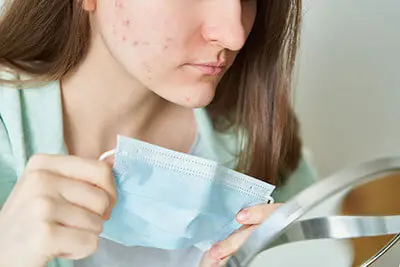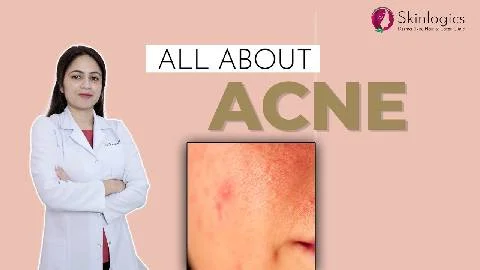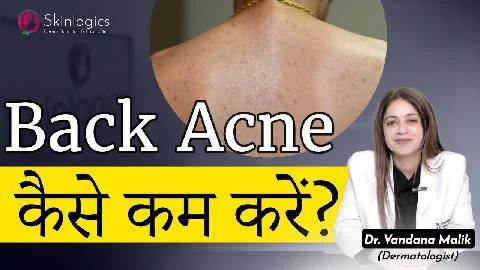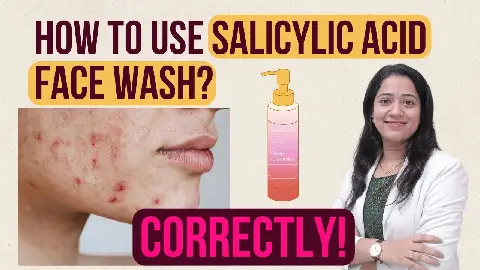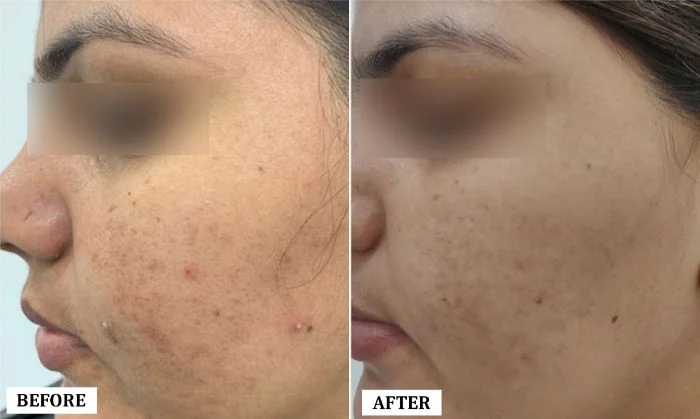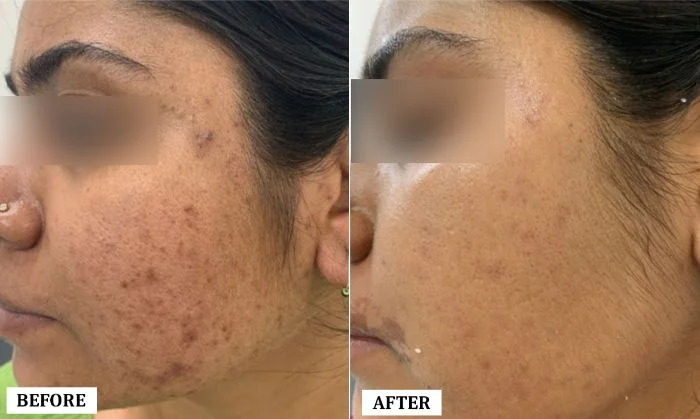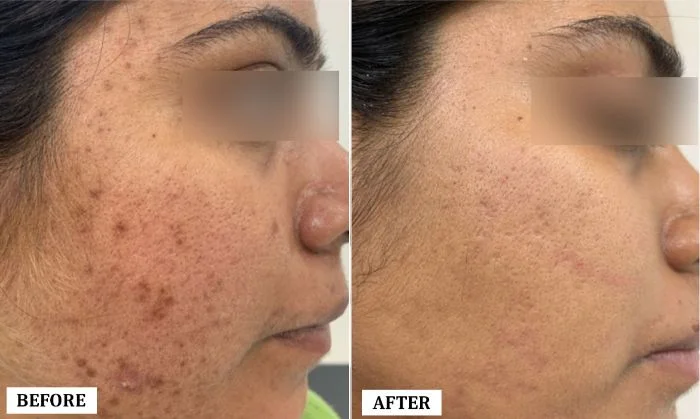Advanced Acne Treatments Available at Skinlogics Clinic in Noida
The types of Acne Treatment can be divided into two parts:
1. Topical Medications
- Retinoids:- Drugs such as retinoic acids and tre-ti-noin, are frequently used to treat mild acne.
- Antibiotics:- Antibiotics work by reducing excess skin bacteria and eliminating redness and inflammation.
2. Dermatological Procedures
For some individuals, the treatments mentioned below will turn out to be helpful, either alone or with the combination of other treatments.
- Laser and Light Therapy:- Several types of lasers and light-based devices have been proven to be effective in treating acne; however, they are only safe and effective when performed by qualified specialists. IPL Photofacial has been in use for many years to treat acne. Newer treatment options in this category include Carbon Laser Peel & LED masks. Often several sessions are required to get the best outcome but results vary from person to person.
- Chemical Peel:- A chemical solution i.e. salicylic acid, glycolic acid, or retinoic acid, is used in this treatment to diminish acne and eliminate blackheads/ whiteheads. It helps to treat mild acne. It may help to improve the appearance of the skin, but the effect of chemical peels is temporary, and repeated treatments are to be taken to maintain the results.
- Comedone Extraction:- Special tools are used by the pimples specialist doctor to remove blackheads and whiteheads or any cysts that have not been treated with topical medications.
NOTE: The experts at Skinlogics recommend the best treatment for pimples. A skin treatment may be effective in certain circumstances, but sometimes, treatments must be used in combination with prescription drugs to obtain the desired results. It's necessary to keep in mind that these procedures should only be carried out under the supervision of qualified dermatologists. It is not recommended to use home remedies or OTC drugs, since they might aggravate acne and make the situation worse.

